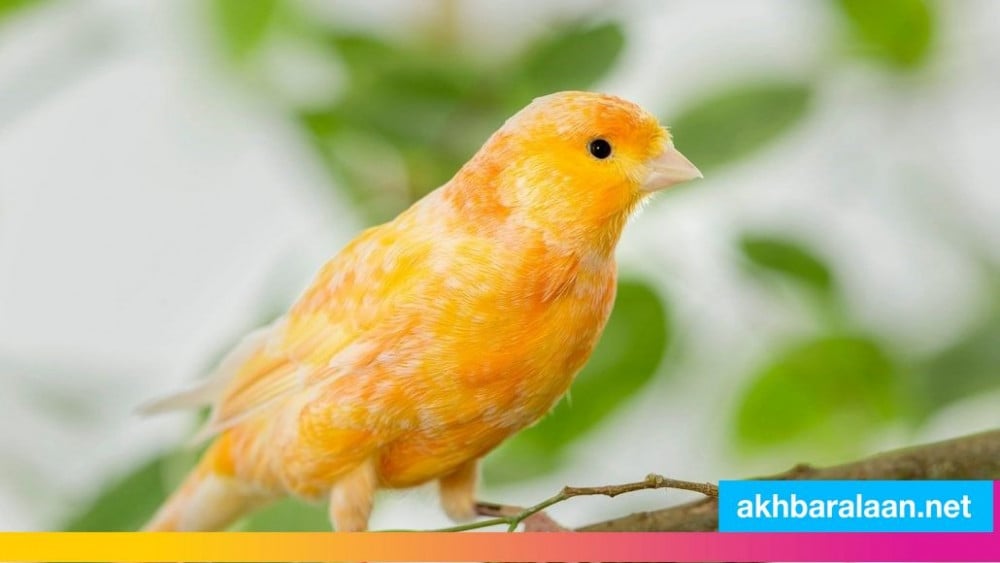Diseases of ornamental birds are many and varied, but at the same time they are frequent among many types of birds that are raised at home. In this article, we will mention the most important diseases of ornamental birds and their treatment at home.
Ornamental birds are exposed to many diseases, the causes of which vary according to their type.
Where some diseases occur as a result of exposure of the bird to severe currents of air due to the position of the bird in the open air.
Others may occur as a result of lack of attention to hygiene and healthy food provided to birds and many other reasons.
Each of these diseases has its own symptoms, which differ according to the type and severity of the disease. The methods of prevention and treatment of each disease also differ. Today we will talk about some diseases of ornamental birds and their treatment.
The most important diseases of ornamental birds and their treatment at home
Diarrheal disease in birds:
Diarrhea in birds is one of the most common diseases, as many ornamental birds are exposed to this disease.
Two types of this disease fall under this disease, the first type, which is called white diarrhea, which is the most dangerous type, and the second type, which is called green diarrhea.
Symptoms:
For white diarrhea in birds, the symptoms are the exit of liquid secretions that carry a white color, and the bird will also show signs of loss of appetite and severe lethargy.
As for green diarrhea, its symptoms are severe suffering during defecation.
the reasons:
Excessive eating of food that contains large amounts of water, or eating spoiled foods, or exposing him to colds.
treatment:
The bird must be isolated from other birds so that the infection does not pass, while refraining from giving it some types of vegetables and fruits that contain large amounts of water, including grapes and apples, and adhering to a balanced health system.
Taking care to clean the bird's cage from excrement, dirt, or other waste
It is possible to give the bird two drops of olive oil, which helps to get rid of harmful substances in the body, and the bird with diarrhea should be kept away from water as much as possible until it recovers completely.
In the event that the bird does not recover, you should visit the nearest veterinary clinic to conduct an examination and give the necessary diagnosis and treatment.
In addition to using some intestinal antiseptics such as Flagyl intestinal antiseptic for pets from Al-Farabi 20m available at the Seventh Bird Showroom
Second: constipation disease in ornamental birds:
Symptoms:
Difficulty during the process of excreting the stool, and the occurrence of a slight bloating in the stomach.
the reasons:
The reasons for constipation are mainly due to the quality of the food provided to the bird, for example, eating too much boiled eggs and not providing any kind of other foods, especially vegetables, leads to constipation.
treatment:
In this case, olive oil can be relied upon, so that the bird is given two drops of it, with fresh vegetables and fruits provided to it under the supervision of the veterinarian.
Third: Tuberculosis:
Tuberculosis in birds is one of the infectious diseases that ornamental birds are exposed to in many cases.
One of the most important symptoms of tuberculosis is the occurrence of diarrhea, especially if the infection is in the digestive system.
If the infection is in the respiratory system, then the symptoms associated with it are coughing, and the bird loses its vitality and activity significantly and becomes lethargic and severely emaciated with a significant loss of appetite.
the reasons:
Neglecting hygiene and not getting rid of the waste and dirt in it, which is an essential source for the growth of many bacteria, microbes and germs that quickly pass on to birds.
treatment:
Treatment of tuberculosis in birds begins with cleaning the cage and its vessels on a regular basis from time to time, while giving the bird antibiotics from time to time.
After that, you must rely on some types of foods that contain useful nutrients and vitamins, such as honey and different types of fresh vegetables.
But in addition to that, you should consult your veterinarian about some antibiotics that help the bird to recover quickly.
Fourth: cold and flu:
Colds in birds often occur in the winter, when the weather is very cold with sudden weather changes.
One of the symptoms of a cold in birds is difficulty during the breathing process, noting the presence of mucous secretions in the nose, and in the event that the cold is not treated quickly, it may develop later into severe pneumonia.
treatment:
Providing a suitable climate for it, so that it is isolated in a warm place away from strong air currents.
Adding some medications according to the condition and its severity based on the veterinarian’s instructions
Fifth: Typhoid disease in birds:
It is one of the acute diseases that many birds are exposed to
One of the most important symptoms of typhoid is loss of appetite and severe lethargy.
Noticing the presence of some foul-smelling secretions, and one of its symptoms is frequent drinking of water for the bird, and this appears clearly on it, and the treatment is to give the bird some antibiotics, specifically “Tramycin”.
Other diseases that birds are susceptible to:
First: Newcastle disease, which is considered one of the most dangerous viral diseases that birds are exposed to, and no suitable treatment has yet been found for it.
Second: Lice disease , which is frequently present in the summer season, which is characterized by intense air temperature, and is more concentrated around the neck and wing area, and one of its most important symptoms is severe itching, and the treatment consists in paying attention to the permanent hygiene of the birds.
Third: scabies disease, which is considered one of the fungal diseases that birds are exposed to, and in this case the bird must be isolated in a place of its own, and medical ointments prescribed by the attending physician should be used.
Fourth: Parrot fever, the most important symptoms of which are loss of appetite and shortness of breath, with severe diarrhea.

